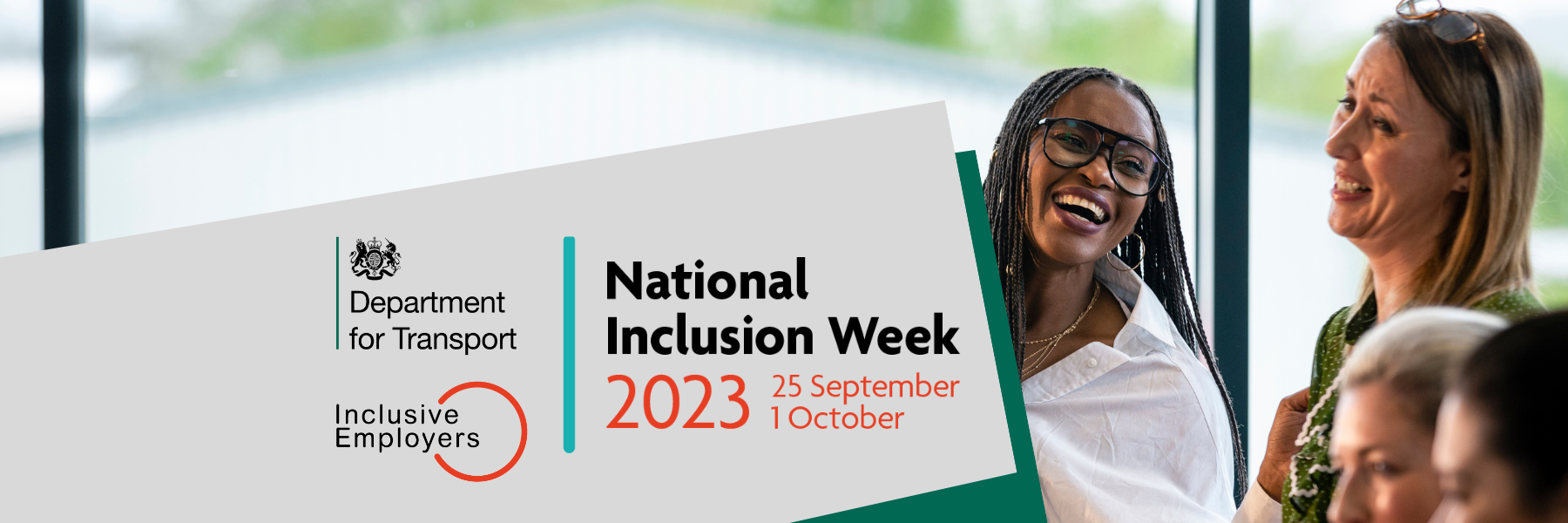At the Department for Transport, we believe that a problem shared is a problem halved. Feeling included and supported is important to us, and that’s why we celebrate the fantastic work DfT’s Staff Network Groups do to bring our people together.
This blog spotlights the incredible work of the Social Mobility Network. Keep reading, and you’ll get a special insight into how our staff network groups not only support hundreds of colleagues across the department, but also hundreds of people in their local communities.
What are Staff Network Groups?
Staff Network Groups are organised by colleagues at DfT who volunteer time outside of their regular working hours and responsibilities. These network groups often comprise a variety of roles – from Group Chairs to Data and Communications roles; and will oversee projects and actions to help provide support and guidance to the network’s members.
Support often means organising events or content where we can come together to talk about common challenges they may be facing, such as coping with loss or juggling work and family responsibilities.
By leveraging our collective voice, we can identify wider social barriers that need to be removed, such as work to promote diversity and equality in the workplace.
Feel Supported in the Workplace and Join a Staff Network: DfT’s latest efforts to support Social Mobility
The Social Mobility Network
Carole and Charlotte, the committee’s most recent co-chairs of DfT’s Social Mobility Network, are dedicated to expanding possibilities for individuals from lower socioeconomic backgrounds and assisting people in achieving their career ambitions.
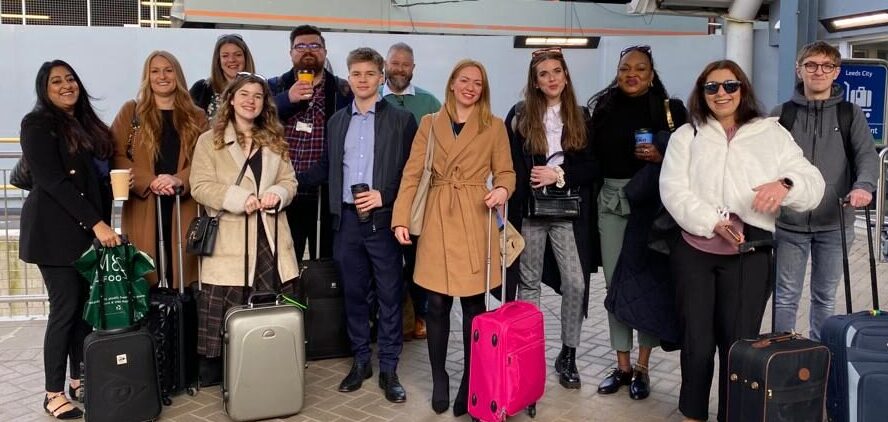
Why is Social Mobility so important?
The network understands that there is a ‘class ceiling’ in Britain. The reality is that even when those from lower socioeconomic backgrounds gain access to the workplace, they tend to earn 17% less on average in comparison to those from advantaged backgrounds.
Recognising the significance of the class pay gap and the resulting inequalities allows us to create opportunities to help close it, such as Carole and Charlotte’s efforts to create a work experience opportunity in DfT.
It is no coincidence that some of our most meaningful and successful work at DfT are those projects that draw from a diverse group of people with a wide variety of skills, experience and backgrounds. To continue creating transport policies, services and initiatives that benefit all in our society, we require a workforce that is truly representative of the wider society we serve.
How does the Social Mobility Network help?
The volunteers from the staff network group recently teamed up with Leeds City College; a sixth form working incredibly hard to tackle these challenges head-on from a community level. From providing refugees with free English classes and bus passes, to ensuring opportunities to succeed are accessible to all of their students.
Earlier in the year Charlotte and Carole spoke at the college’s Women in Leadership event. They witnessed first-hand how sharing their own experiences with social mobility, and how they’ve since thrived at DfT regardless of this, positively impacted the students. The importance of ensuring these students had more opportunities and role models weighed on them after the event…
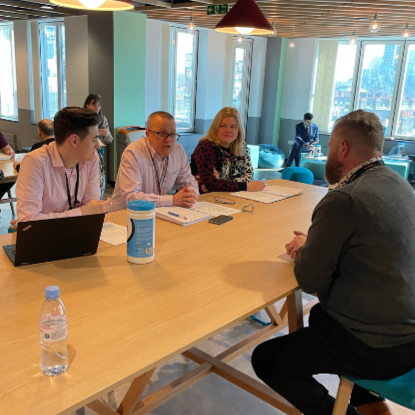
Wanting to do more, Carole and Charlotte organised a two-day trip to London giving students a glimpse into the possibilities of working in the Civil Service. For many of the students, this would be their first opportunity to gain work experience and travel outside of Leeds, so it was fascinating!
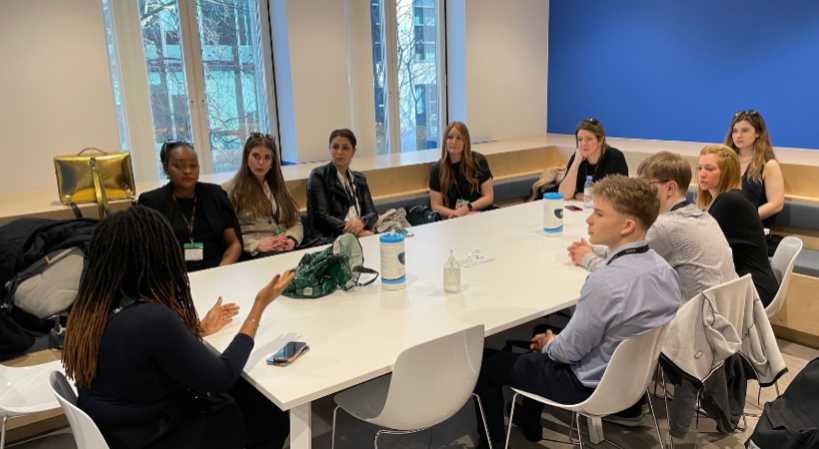
A Tour of the Department for Transport
The events arranged for the trip aimed to show students first-hand the work we carry out and the skills we look for from the people who work at the Department for Transport. One of the biggest hurdles to joining DfT can often be the recruitment process, and so our guests were talked through best practices, hints and tips for submitting an application and interviewing.
It can often be easy to say in words how diverse we are as an organisation, but having a tour of our working environment really brings our values and inclusive environment to life. Staff from diverse backgrounds volunteered to talk about their career stories and advice for overcoming their struggles with imposter syndrome.
What do Staff Networks have to offer?
Within DfT, there is a strong culture of growth, support, and learning. Colleagues at DfT were more than pleased to volunteer and welcomed this kind of opportunity to give back by sharing their experiences and journey.
After arriving and being given a tour of the London Department for Transport office, Peter Wilkinson, the Managing Director of Rail Passenger Services, gave a talk to the students providing tips on how to build a professional reputation and insight from an employer perspective.
Insight into the types of real-life projects currently being worked on in DfT was presented to the students, discussing the issues they faced and emphasising how helpful different perspectives are when coming up with solutions. The students were deeply inspired by the chance to learn about the job, ask questions, and interact with professionals.
“One student has now entered the civil service as a result of the work experience trip in March, while another is planning to apply.”
Minister Baroness Vere, Parliamentary Under-Secretary of State, and Bernadette Kelly, Permanent Secretary in the Department for Transport stopped by to explain their senior roles to the students.
The response to the outreach initiative was overwhelmingly positive, and based on the feedback, it was undoubtedly an event they would remember for the rest of their careers. The message was crystal clear; opportunities like these really do help to build confidence, inspire belief and break down those feelings of inadequacy to apply for certain positions.
One student has now entered the civil service as a result of the work experience trip in March, while another is planning to apply.
DfT ranked as one of the Top Employers for Social Mobility
We are proud to report that The Department for Transport has recently been ranked among the Top 75 Employers for Social Mobility. Outreach projects, such as the above, make significant contributions to this by showcasing the opportunities DfT has for all.
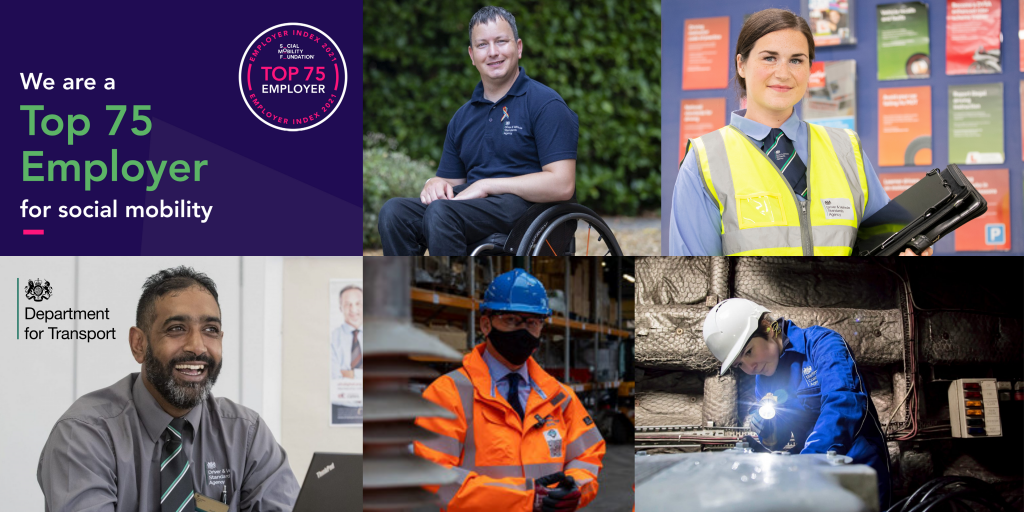
Join us and become part of something bigger
written by: Eleanor Hughes


